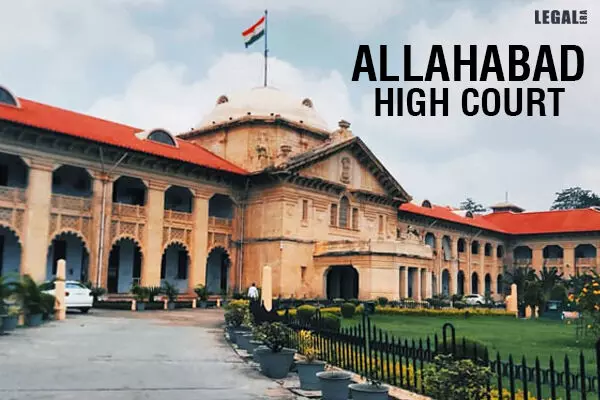- Home
- News
- Articles+
- Aerospace
- Agriculture
- Alternate Dispute Resolution
- Banking and Finance
- Bankruptcy
- Book Review
- Bribery & Corruption
- Commercial Litigation
- Competition Law
- Conference Reports
- Consumer Products
- Contract
- Corporate Governance
- Corporate Law
- Covid-19
- Cryptocurrency
- Cybersecurity
- Data Protection
- Defence
- Digital Economy
- E-commerce
- Employment Law
- Energy and Natural Resources
- Entertainment and Sports Law
- Environmental Law
- FDI
- Food and Beverage
- Health Care
- IBC Diaries
- Insurance Law
- Intellectual Property
- International Law
- Know the Law
- Labour Laws
- Litigation
- Litigation Funding
- Manufacturing
- Mergers & Acquisitions
- NFTs
- Privacy
- Private Equity
- Project Finance
- Real Estate
- Risk and Compliance
- Technology Media and Telecom
- Tributes
- Zoom In
- Take On Board
- In Focus
- Law & Policy and Regulation
- IP & Tech Era
- Viewpoint
- Arbitration & Mediation
- Tax
- Student Corner
- AI
- ESG
- Gaming
- Inclusion & Diversity
- Law Firms
- In-House
- Rankings
- E-Magazine
- Legal Era TV
- Events
- News
- Articles
- Aerospace
- Agriculture
- Alternate Dispute Resolution
- Banking and Finance
- Bankruptcy
- Book Review
- Bribery & Corruption
- Commercial Litigation
- Competition Law
- Conference Reports
- Consumer Products
- Contract
- Corporate Governance
- Corporate Law
- Covid-19
- Cryptocurrency
- Cybersecurity
- Data Protection
- Defence
- Digital Economy
- E-commerce
- Employment Law
- Energy and Natural Resources
- Entertainment and Sports Law
- Environmental Law
- FDI
- Food and Beverage
- Health Care
- IBC Diaries
- Insurance Law
- Intellectual Property
- International Law
- Know the Law
- Labour Laws
- Litigation
- Litigation Funding
- Manufacturing
- Mergers & Acquisitions
- NFTs
- Privacy
- Private Equity
- Project Finance
- Real Estate
- Risk and Compliance
- Technology Media and Telecom
- Tributes
- Zoom In
- Take On Board
- In Focus
- Law & Policy and Regulation
- IP & Tech Era
- Viewpoint
- Arbitration & Mediation
- Tax
- Student Corner
- AI
- ESG
- Gaming
- Inclusion & Diversity
- Law Firms
- In-House
- Rankings
- E-Magazine
- Legal Era TV
- Events
Allahabad High Court: Arbitration Award Execution can be Filed Anywhere in India

Allahabad High Court: Arbitration Award Execution can be Filed Anywhere in India
The Allahabad High Court has ruled that a petition for the enforcement of an arbitral award can be executed anywhere in the country, where the award debtor's assets are located.
Justice Pankaj Bhatia ruled that Section 42 of the Arbitration and Conciliation Act, 1996 (A&C Act), which prohibits any petition in a court other than the court where the first petition related to the arbitration agreement was filed, does not apply to petitions for the enforcement of arbitral awards. He relied on the Supreme Court judgments in Sundaram Finance and Cheran Properties to reach this conclusion.
On July 2, 2018, the parties entered into an agreement in which the respondent agreed to supply goods to the petitioner. A dispute arose between the parties regarding payment for the goods supplied under the agreement.
Accordingly, the respondent filed a reference before the Micro and Small Enterprises Facilitation Council (MSEF Council), which awarded the respondent damages. The petitioner challenged the award under Section 34 of the A&C Act, read with Section 19 of the Micro, Small and Medium Enterprises Development Act, 2006 (MSMED Act), before the Commercial Court, Kanpur. However, the Court dismissed the challenge because the petitioner failed to deposit the required 75 per cent of the awarded amount. The respondent then filed an execution petition under Section 36 of the A&C Act before the Commercial Court, Lucknow.
The petitioner filed an objection to the execution petition, arguing that since the petition under Section 34 had been filed before the Commercial Court in Kanpur, any subsequent petition had to be filed before the same court, by virtue of Section 42 of the A&C Act. The executing court overruled the objection, and the petitioner challenged it under Article 227 of the Indian Constitution.
The petitioner challenged the executing court's order, arguing that the award was delivered in Kanpur and was also challenged in the Kanpur court. Therefore, the bar under Section 42 of the A&C Act applied, and the execution petition filed in the Lucknow court was not maintainable.
The High Court observed that the Supreme Court in the Sundaram Finance and Cheran Properties case has ruled that the holder of an arbitral award can file an execution petition before any court in the country where the award is enforceable, without having to obtain a transfer of the decree/award from the court that had jurisdiction over the arbitral proceedings.
The Court ruled that the respondent had not committed an error by filing the execution petition in the Lucknow court. The fact that the award was delivered in Kanpur or that the petition under Section 34 was filed in the Kanpur court did not make the petition non-maintainable, as the bar under Section 42 of the Act does not apply to execution petitions. Accordingly, the Allahabad High Court dismissed the petition.


